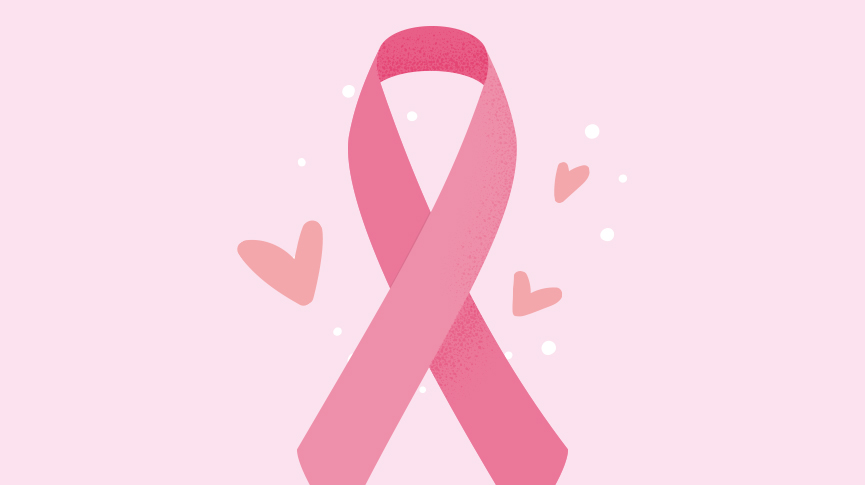What you need to know: Sex & Breast Cancer Recovery

According to the American Cancer Society, there will be nearly 300,000 new cases of breast cancer throughout 2020, 99% of which will be diagnosed in women.Thankfully, with our deeper understanding about hereditary risks and improved treatment options, more and more people are surviving their breast cancer. But does breast cancer mean your life will be changed forever?
When dealing with breast cancer, sex is (understandably) nowhere near the top of your list of concerns. Just the stress of a diagnosis and the physical strain of treatment is enough to push sex and intimacy to the bottom of the pile.
Moreover, breast cancer, possibly more than any other illness, impacts a woman’s perception of her own sexuality.
The loss of your breasts, a body part closely tied to concepts of femininity, can be a huge blow to your self-image. “A cancer diagnosis does not have to mean the end to intimacy”, says Dr. Laurie Bailey Birkholz, specialist in women’s health and cancer survivorship and member of the Intimina Medical Advisory Board.
She points out that while sex and intimacy may change, you can still have a fun and fulfilling sex life.
7 in 10 breast cancer survivors experience sexual problems, so this is an issue worth talking about. Here are just some things you need to know about sex after breast cancer recovery.
Unspoken Issue
Each year hundreds of thousands of women are treated for breast cancer, and at least 70% of them will have issues with sex. But most doctors (and often patients) are so focused on beating the disease that they ignore the effects of treatment. It’s important that women are empowered to ask ALL questions about their health and confident in getting the help they need.
Reclaiming your sex life is just as legitimate as any other medical issue.
Sexuality & Body-Image
You’ve changed both physically and mentally, and that can affect your libido and the way you see yourself. Your body has just survived a huge threat, but you’re still attractive and desirable –you just need to become comfortable with yourself (and your partner) again.
Here are a few simple ways you can start to regain your confidence.
Taking another look at scars. At first you might be shocked by the changes to your body—especially scars from a mastectomy or lumpectomy. But know that they’ll fade,and the first step of acceptance is knowing that you’re not alone. There are many very good photography series and projects showing breast cancer survivors proudly displaying their scars.
If you’re in a relationship, have your partner look through the photos; it can be a good way to prepare together for the changes and start discussions about intimacy.
Looking and feeling sexy. Changes in your breasts will take time to get used to. Feeling desirable and confident is about more than just lingerie in the bedroom – it’s also about feeling attractive throughout the day. If you’re not comfortable showing your incision yet, look for clothes and nighties that cover the parts you’re not ready to show yet, but also make you feel attractive.
Getting to know yourself again. Your body has changed after cancer, some of the changes will be short term, while others will be permanent so talk to your doctor about what to expect. It’s important to remember that you can and will still feel pleasure. Dr. Bailey Birkholz explains that “personal massagers are great for keeping your sexuality alive while in treatment, and to rediscover yourself afterwards.
Once you’re comfortable your partner can join in. This is where the fun can come in!”
Physical Changes And Sex
In addition to radiation and surgery, many treatments and medications can lower or stop estrogen production in women, causing early menopause. However, that doesn’t mean your sex life ends. Talking to your doctor is the first step – they can tell you what to expect but there are a few simple ways to manage these changes.
Dryness and pain during sex. Lower estrogen levels mean that your body doesn’t produce as much vaginal lubrication – so sex can be painful. A pH balanced vaginal moisturizer can help with daily dryness, and you can use a water-based lubricant during sex for more comfort. Kegel exercises, the contraction of your pelvic floor muscles, increase blood flow to the area and encourages the production of fluids to lubricate it.
The blood flow from Kegels also can have the added benefit of increasing arousal and desire.
Lack of estrogen can also cause your vagina to become narrower, which can also cause pain during penetration. Sex and masturbation (with penetration) helps keep your vaginal tissues flexible, so there’s another excuse to use your favorite personal massager! In extreme cases some women experience vaginismus, where the vaginal muscles unconsciously spasm, making penetration painful or nearly impossible.
If you think you’re experiencing vaginismus, visit your gynecologist, they can recommend a treatment plan including vaginal dilation to get your body reaccustomed to penetration.
Breast changes and sensitivity. Differences in sensitivity can be difficult to adjust to, especially if your breasts or nipples were a large source of pleasure before your diagnosis. Spend some time figuring out what feels good for you now, and if you’re in a relationship be open and honest with your partner.
Intimacy And Relationships
Whether they’re already in a relationship or still looking for the right person, many women worry about intimacy and relationships after breast cancer. In both cases it’s important to move at a comfortable pace for you and your partner. Dr. Bailey Birkholz’s key advice: “Communication, communication, communication!”
If you’re in a relationship: You’re going through a lot, but it’s important to remember that your partner has gone through changes of their own. They’ve had to confront the very real possibility of losing you forever. So there’s a good chance that they now have an even greater appreciation for your body – scars and all. However, all this change creates uncertainty on both sides.
“Often the partners of women affected by breast cancer may be afraid they are going to hurt their loved one and so they avoid intimacy.
This can be misunderstood by the women going through the cancer journey as a loss of interest. You can easily see why it’s so important to TALK about what is happening” says Dr. Bailey Birkholz, “Keep an open dialogue with your partner on how you’re feeling and how you like (or don’t like) to be touched.”A sex or couples’ counselor as a neutral party to facilitate this communication can also be a great help.
If you’re still looking: The prospect of dating again might cause you some anxiety – particularly deciding when to open up to a new partner. Just keep this in mind: your breast cancer doesn’t define you. Get to know your new love interest to be sure that they’re someone you want around long term.
Get out and meet new people and try new things, you survived and deserve to enjoy the life you have – and you will!
Breast cancer is not the end of intimacy. Millions of women have exciting, pleasurable and healthy sex lives post-breast cancer. What’s important is to be open with your partner, and to be direct with your doctor about your health and sexuality during and after treatment. There is more to recovery than just being cancer free – you deserve a full and healthy life, and sex and intimacy are part of that.
For more advice on rediscovering your sexuality after an illness, here’s a video with Sue Goldstein sexual health educator and Intimina Medical Advisory Board member:

Lane Baumeister is an internationally-based Canadian writer with several years’ experience creating educational and entertaining articles that discuss intimate health and sexual well-being. When not waxing profound about menstruation, she devotes herself to enjoying extremely good food and equally bad movies.


